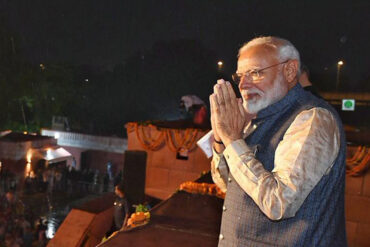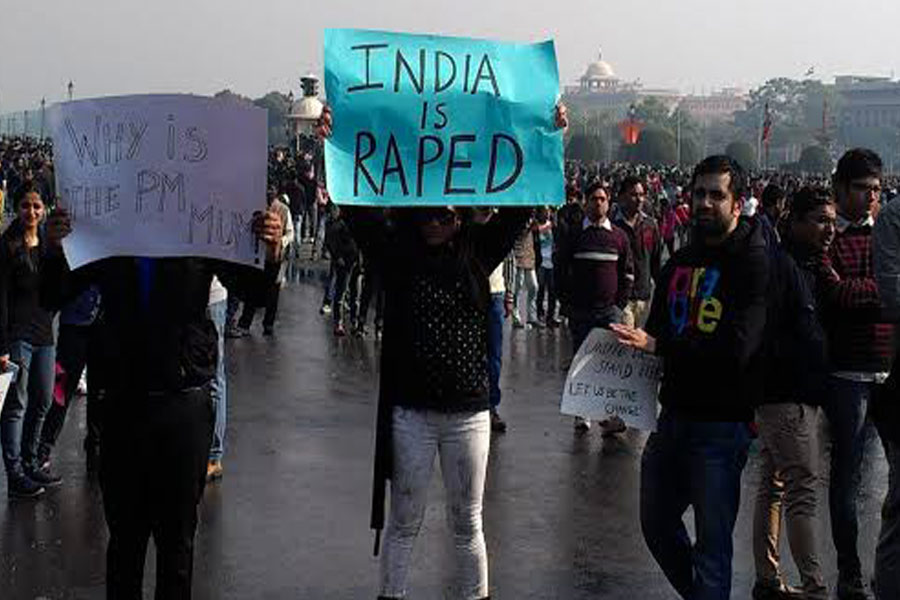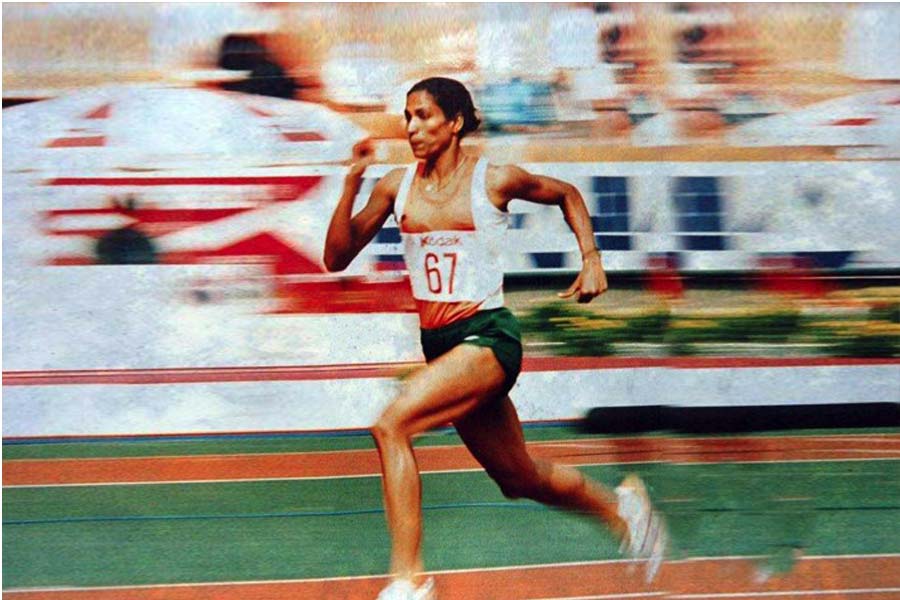Twenty-six-year old veterinary doctor raped and murdered in Hyderabad
Six-year old raped, strangled with her school belt in Tonk, Rajasthan.
A six-month old baby raped in a slum in Delhi.
The list is never-ending. Crimes against women in India have shown an alarming increase of late. But the Government does not seem to take any responsibility for the safety of women. When a heinous crime occurs, for a few days, noises are made in Parliament, lawmakers shake their heads in pity and swear to take stringent action to stop the malaise—some of them have even called for the lynching of rapists….but soon things go back to square one. The same crimes continue unabated.
The recent Hyderabad rape and murder of a 26-year old vet, killed by the very men who pretended to help her, has caused furious protests in all parts of the country. In fact, it has been referred to as the Telangana Nirbhaya case like the 2012 Delhi case. Had it not been for police tardiness and lack of cooperation, the Hyderabad vet’s life could have been saved.
On November 27, the girl left her house in a southern suburb of Hyderabad in the evening. The last time her family heard from her was at 9.22 pm when she called her sister from a toll plaza on the Bangalore-Hyderabad highway. She told her she was feeling scared. She said her scooter had a puncture and a group of men had offered to help her but she was feeling scared and requested her to “keep talking to me.” A little later when her sister called her, she found her phone switched off. She rushed to file a complaint at the Rajiv Gandhi International Airport police station but was told by the officers on duty that the toll plaza did not fall in their jurisdiction.
The police even audaciously suggested to the girl’s family that she might have “eloped with a boyfriend.” The family finally managed to lodge a ‘missing persons’ complaint at the Shadnagar police station at 3.10 a.m. By then, valuable time had been lost. The woman was gang raped by the four men, who were under the influence of liquor. They smothered her to death and later burnt her body.
As news of the incident travelled, there was widespread outrage. The rape of the 26-year old vet reminded people of the brutal rape and murder of a 24-year old physiotherapy student in a moving bus by a group of six men in December, 2012. That heinous crime had led to a nationwide movement for women’s rights and a revision of rape laws.
Now, one week later, the four accused in the case have been shot dead by the police in what is termed as an “encounter” killing. The police claim that the accused were attempting to flee when they were brought to the scene of the crime. Is this an extra-judicial killing? Did the police follow their protocols? Have the police taken law into their own hands as they were being criticized for tardiness and shirking responsibility? Many questions have been raised about the police version.
There is a call for setting up more fast track courts for speedy justice and punishing the cops for dereliction of duty. The police seem to be stretched, for there is a huge shortage of police personnel manning law and order. VIP security takes precedence over the common man.
Even though there has been a slight increase in awareness, nothing much has changed since 2012. The horrific Delhi rape case took place seven years ago. But nothing has changed in the interim. The same misogyny and patriarchal mindsets are ever prevalent. Even though rape laws were made much more stringent, the implementation is tardy. The rate of conviction of rapists is still abysmally low. Four convicts on the death row for the Delhi rape case are still behind bars, with mercy petitions delaying the inevitable.
For long, women activists have been demanding fast-track courts to settle rape cases, so that there can be swift conviction and justice. The suffering of the victim and her family and relatives is intensified by the delay in justice. Justice delayed is justice denied.
Presently, Chairperson of Delhi Commission for Women, Swati Maliwal, is on an indefinite hunger strike at Jantar Mantar demanding that rapists be hanged within six months of their conviction. In a letter to Prime Minister, Narendra Modi, Maliwal has also demanded proper utilization of money in the Nirbhaya fund and setting up of fast-track courts across the country.
Rekha Sharma, Chairperson, National Commission for Women, observed: “The mindsets of the people need to be changed. This is a long-term process and cannot be done in a day, a month or a year. We have to start from scratch…with our children. Perhaps we can see the change in the next generation.”
People need to be sensitised and need to be taught to respect women. The short-term measures would include implementation of laws. She added that the police need to be sensitised. Shortage of police personnel is a big problem, she said. Several policemen remain busy on VIP duties.
Speaking to The Kochi Post, Sharma added that changing the mindset of society at large is the need of the hour. “Somewhere morally we have gone down. They say women should be worshipped, but in every home women are not being treated properly…there is violence against women but they themselves don’t take it seriously enough. They have seen their mothers being beaten by their fathers. Their children also take it lightly when they see women being beaten by their husbands. It is a vicious circle,” Sharma added.
Rekha Sharma went on to observe that there was a need to inform and educate people. The will of the people is very essential. Government officials and police need to take their work more seriously. Families need to teach their children to respect women. Women need to be made aware of their rights, they should be financially empowered. If a woman is financially independent, then she can stand up for herself and refuse to brook abuse.
Sanchi Arora, a young working woman in Delhi said that one used to think that Delhi is the most unsafe city. But after the Hyderabad rape, one feels that anything can happen anywhere and women are not safe anywhere. She added, “There is a need for gender sensitization. We talk of equal opportunities for men and women. But equality is not only in jobs. Women should also enjoy the equal right to walk around freely after dark. How can they keep their jobs if they are not safe while travelling alone?”
She added that even before the Hyderabad incident, she was suspicious of strangers while travelling alone but she still did so. Would she be confident of travelling alone in the dark now? “Absolutely not”, came the reply. Women dread the thought of going out in the dark, plead for morning shifts at their place of work and their kin become almost patriarchal in protecting and controlling them.
Streets throughout the country need to be properly lit after dark and police patrolling should be stepped up. Quick reforms need to be brought about in the education system. Boys at a young age should be taught to respect women, those in their own homes, their mother, sisters and classmates. Patriarchal mindsets need to be changed; women should not be denied the right to work.
A lot needs to be done to ensure that every woman, be it a girl, an adult, the infirm and the aged, feel safe and secure on the streets. The sense of outrage and anger has to be kept alive in our hearts.







